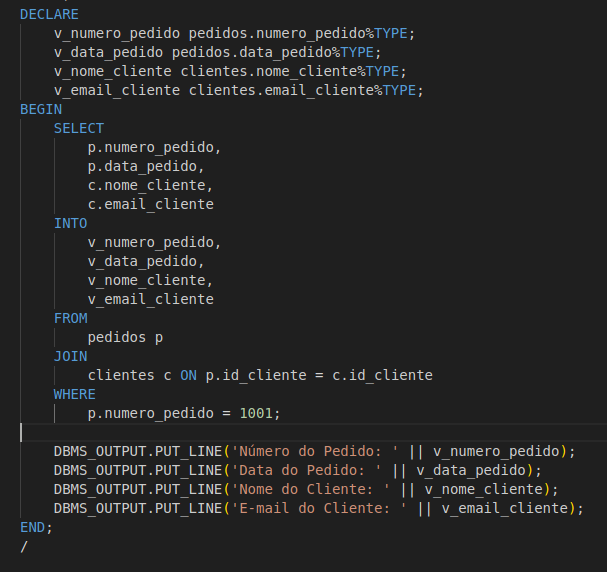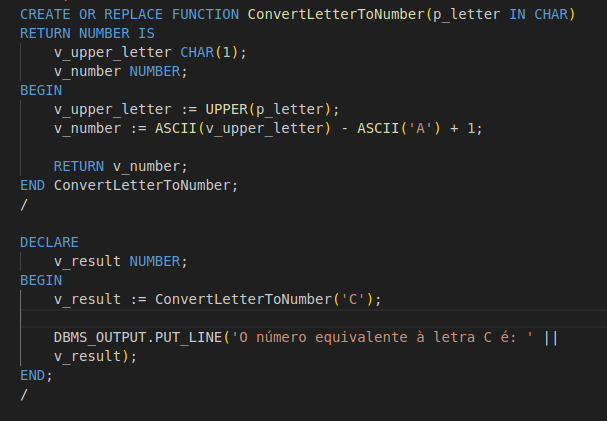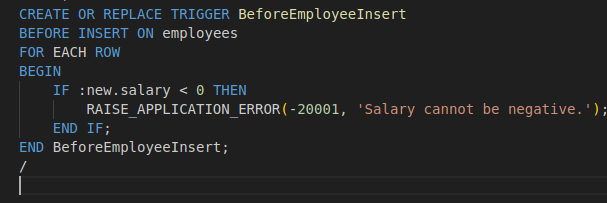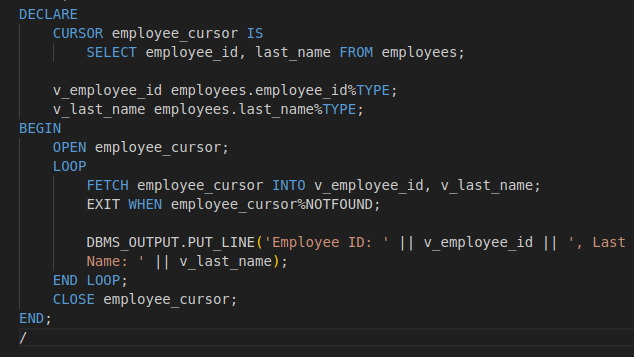Hire
Oracle
developers
pre-screened for technical and cultural fit
FREE to try! No cost to get started

40k+
ENGINEERS
14 days
to hire
100+
COVERED
30-50%
US hires
Hire the top 1% of
Oracle
developers
























Hire REAL devs in days
Build world-class remote development teams fast that scale with your needs

Time-to-Hire

Developers
.svg)
Alignment
Efficiency
.svg)
Over 250 companies trust us with their tech hiring needs



Hiring an Oracle developer is essential for businesses seeking to manage and harness large volumes of data efficiently. These experts build, maintain, and optimize Oracle databases, ensuring data security, integrity, and performance. The ability to leverage Oracle's advanced features for data analytics, scalability, and real-time processing can be groundbreaking for companies, speeding up decision-making and increasing competitive advantage.
However, businesses seeking to hire Oracle developers often run into roadblocks due to these professionals’ specialized knowledge and the high demand for their expertise. The job search requires careful vetting, extensive technical assessments, and competitive compensation packages to attract top talent. Nevertheless, the payoff lies in having experts who can unlock the full potential of Oracle databases, enabling businesses to thrive in data-driven environments.
What Is Oracle Development?
Oracle development involves creating and managing robust, secure, and scalable databases using Oracle's technology stack. Oracle developers work on projects such as developing custom applications, data warehousing, and business intelligence systems. These solutions are crucial for companies with extensive data requirements, enabling them to streamline operations, make data-driven decisions, and gain a competitive edge by efficiently managing and analyzing their data assets.
A few examples of projects that could use Oracle development include:
- Enterprise resource planning (ERP) systems: Oracle development creates customized ERP solutions that integrate various business processes, including finance, inventory, and HR, into a unified platform.
- Data warehousing: Oracle developers can create systems that consolidate and store data from multiple sources. For instance, in retail, Oracle development helps analyze sales trends, optimize inventory management, and enhance customer experiences.
- E-commerce platforms: Oracle development supports high-performance e-commerce platforms that handle vast product catalogs, transactions, and customer data securely and efficiently.

Why Oracle Development?
Oracle development is vital for businesses due to its optimization capabilities in managing and analyzing vast datasets. It enhances database administration and database management systems and is crucial for maintaining data integrity and security. Oracle's applications range from improving customer relationship management to performing financial analysis.
Employing Oracle development helps businesses make data-driven decisions, enhance efficiency, and ensure data reliability. It plays a pivotal role in cloud-based solutions, including AWS, aligning with modern DevOps practices for seamless integration and scalability.
For example, an e-commerce company could use Oracle applications to enhance sales by implementing Oracle's customer relationship management (CRM) system. The company can personalize marketing campaigns, recommend tailored products, and optimize pricing strategies by integrating customer data, purchase history, and user behavior insights. Oracle's CRM can also streamline order management and inventory control to make products readily available, reducing backorders and enhancing the shopping experience. This data-driven approach could lead to increased customer retention, higher conversion rates, and increased sales.
Benefits of Oracle Development
Oracle development helps businesses stay agile and responsive, making it indispensable for growth and competitiveness. It facilitates scalability, fortifies data security and compliance, optimizes performance, empowers data-driven decision-making, guarantees reliability, supports cloud integration, and enhances cost-efficiency. These advantages collectively position Oracle development as a vital asset for organizations seeking to harness the full potential of their data and IT infrastructure.
Some of the specific benefits of Oracle development include:
- Scalability: Oracle solutions are highly scalable, accommodating business growth and evolving data requirements.
- Data security: Oracle provides robust security measures to protect sensitive data and ensure compliance with regulations.
- Performance optimization: Oracle databases deliver high performance through efficient indexing and data management.
- Business intelligence: Oracle's tools enable advanced analytics and reporting, empowering data-driven decision-making.
- Reliability: Oracle's Database Management System (DBMS) ensures system availability and minimal downtime.
- Cloud integration: Oracle offers cloud-based solutions, facilitating seamless migration and data management in the cloud.
- Cost efficiency: Oracle development can reduce operational costs and improve ROI by optimizing resource utilization.
What Does an Oracle Developer Do?
Oracle developers design and maintain robust database systems that adhere to best practices in data modeling and database development. They aim to optimize data access, ensure data integrity, support business operations with reliable databases, and contribute to the organization's overall data strategy.
While their specific duties vary depending on the company, Oracle developers’ primary objectives and responsibilities typically include:
- Data modeling: Creating and optimizing data models within Oracle databases for efficient storage and retrieval
- Database development: Developing and maintaining Oracle SQL scripts and procedures
- Oracle Cloud management: Working with Oracle Cloud to provision resources, optimize performance, and ensure reliability and scalability
- Relational database coordination: Using various tools such as Oracle SQL Developer, Oracle Cloud Infrastructure, and SQL scripting to ensure the integrity and performance of relational database systems
- MySQL management: Managing MySQL databases, if required, in conjunction with Oracle databases
- SQL Developer administration: Using tools like Oracle SQL Developer for database administration tasks
- Shell scripting: Writing shell scripts to automate database management and administrative tasks
- DevOps collaboration: Working with DevOps teams to integrate databases into the development and deployment pipeline.


Required Skills and Qualifications
Top Oracle developer candidates should possess a strong foundation in SQL server management and procedural language/structured query language (PL/SQL), allowing them to design, optimize, and maintain databases effectively. Proficiency in Microsoft technologies, including RAC database design, is crucial for seamless integration into existing infrastructures. Technical familiarity with Linux, Android, and Windows facilitates cross-platform development and database management.
Developers should also have strong problem-solving skills, attention to detail, and communication for collaborating with different teams on complex database projects. Qualifications such as a bachelor's degree in computer science or related fields and relevant certifications like Oracle Certified Professional (OCP) signify candidates' commitment to their field and ability to handle sophisticated database tasks. These skills and qualifications are vital for Oracle developers to excel in designing, developing, and maintaining high-performance databases.
Popular Oracle-Related Languages and Libraries
Oracle developers require SQL, PL/SQL, and Java expertise to effectively manage databases. SQL is fundamental for data querying and manipulation, while PL/SQL is Oracle's proprietary language for creating database-related logic. Java is commonly used to develop applications that interact with Oracle databases.
While they may not use many general-purpose libraries, Oracle developers rely on Oracle-specific tools like OCI, which provides native access to Oracle databases for high-performance custom applications in C or C++. JDBC OCI bridges Java and Oracle databases, and ODP.NET serves .NET developers, enabling efficient data access and management within Oracle systems.
Related Languages
In their work, Oracle developers require a deep knowledge of specific programming languages to build and manage databases effectively. The three key languages they should know are:
- SQL (structured query language): SQL is essential for querying, managing, and manipulating data in Oracle databases.
- PL/SQL: PL/SQL is Oracle's proprietary language for developing stored procedures, triggers, and other database-related logic.
- Java: Oracle developers commonly use Java to create and extend applications that interact with Oracle databases, making it a versatile choice for building Oracle-based solutions.
Related Libraries
While they may not rely on a wide array of general-purpose libraries like some other development roles, Oracle developers heavily depend on Oracle-specific tools and technologies to efficiently work with databases and develop database-related logic. Some of these include:
- Oracle Call Interface (OCI): OCI is a C-based library that provides native access to Oracle databases, enabling developers to create high-performance, custom Oracle database applications using C or C++ programming languages.
- JDBC for Oracle Call Interface (JDBC OCI): This enables Java applications to connect and interact with Oracle databases, providing a bridge between Java code and the Oracle Call Interface (OCI). This driver allows developers to use Java to execute SQL queries and manage Oracle databases efficiently.
- Oracle Data Provider for .NET (ODP.NET): ODP.NET is a data access component provided by Oracle for .NET developers. It enables .NET applications to connect to and interact with Oracle databases, offering a high-performance and efficient means of accessing and managing data within Oracle database systems.
Popular Oracle Programming Tools
Oracle developers rely on various tools to streamline database development, management, and modeling. These tools are critical for effective data manipulation, database administration, schema comparison, and database design, ultimately enhancing the effectiveness of Oracle developers in creating robust database solutions. They include:
- SQL Developer: SQL Developer is a powerful integrated development environment for Oracle databases. It simplifies database development tasks, offering features like SQL querying, data modeling, and debugging. It enhances the efficiency of Oracle developers in managing and manipulating data.
- Toad for Oracle: Toad is a database management tool designed specifically for Oracle. It provides a user-friendly interface for database administration, schema comparison, and performance-tuning tasks. It streamlines database-related tasks and contributes to better database performance.
- Oracle SQL Developer Data Modeler: This tool helps Oracle developers design, create, and manage database models. It supports data modeling standards and practices, enabling efficient database design and maintenance.

Access Revelo's talent pool of
Oracle
developers
with technical expertise across Libraries, APIs, Platforms, Frameworks, and Databases
Libraries
Frameworks
Facebook API | Instagram API | YouTube API | Spotify API | Apple Music API | Google API | Jira REST API | GitHub API | SoundCloud API
APIs
Amazon Web Services (AWS) | Google Cloud Platform (GCP) | Linux | Docker | Heroku | Firebase | Digital Ocean | Oracle | Kubernetes | Dapr | Azure | AWS Lambda | Redux
Platforms
Databases
MongoDB | PostgreSQL | MySQL | Redis | SQLite | MariaDB | Microsoft SQL Server









